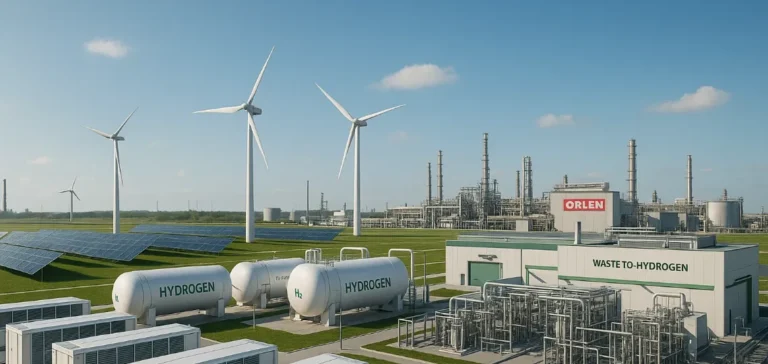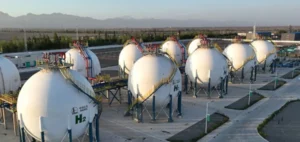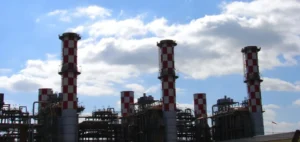The Polish energy group ORLEN announced it has secured a total non-repayable grant of PLN 1.7 billion (€382 mn) through the National Recovery Plan, allocated to finance its two strategic programmes, Hydrogen Eagle and Green H2.
ORLEN’s hydrogen production objectives
These projects primarily target hydrogen production from two specific sources: renewable energies through electrolysis, and municipal waste via a recovery technology called “Waste-to-Hydrogen”. ORLEN SA’s CEO, Ireneusz Fąfara, stated that this financial assistance will facilitate the rapid expansion and optimization of hydrogen production infrastructure.
According to ORLEN’s established strategy, the company plans to reach a total hydrogen production capacity from electrolysis of approximately 0.9 gigawatts (GW) by 2035, including around 0.7 GW located in Poland. Additional hydrogen needs are expected to be covered by imports via maritime routes, depending on the availability of import infrastructure.
Presentation of Hydrogen Eagle and Green H2 programmes
The Hydrogen Eagle programme involves investments aimed at diversifying hydrogen production sources, combining renewable energy and municipal waste. This project also aims to reinforce Europe’s overall hydrogen infrastructure.
The Green H2 programme, led by the specialized subsidiary LOTOS Green H2, an ORLEN affiliate, plans to install a 100-megawatt (MW) electrolyser paired with an energy storage facility at the fuel refining industrial site in Gdańsk. This renewable hydrogen will be directly integrated into local industrial processes.
Technological cooperation and fund management
In parallel, ORLEN Venture Capital (ORLEN VC), the group’s investment fund, recently invested in Hystar, a Norwegian manufacturer specializing in high-efficiency proton exchange membrane (PEM) electrolysers. This investment aims to technologically support ORLEN’s ambitions in the hydrogen sector.
The grant comes from the third funding phase of measure B2.1.1 of Poland’s National Recovery Plan, targeting investments in hydrogen technologies, production, storage and transport of this resource. This programme is administered by the Polish public bank Bank Gospodarstwa Krajowego.
This financial support is part of a broader strategy aiming to restore national economic momentum and enhance Poland’s technological competitiveness internationally.






















